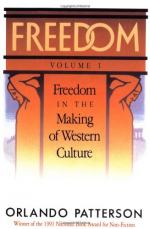|
This section contains 401 words (approx. 2 pages at 400 words per page) |

|
Chapter 15 Summary and Analysis
This chapter looks at the effects of Stoicism on Roman society. Cato represents reactionary Stoicism. It appeals to the Roman upper classes, since it is based on reason. They merely adapt the philosophy to fit their version of civic freedom. Wise and good men's actions are based in reason. It is still possible for the upper class to experience personal freedom even when their civic freedom is severely limited by the princeps. Many in the nobility view the princeps as a form of slavery, but Stoicism gets them through the changes and becomes a pseudo-religion. The upper class young men of the time are educated in Stoicism and despise the populace and their ties to the emperor. These young upper class Romans emphasize inner freedom over outer freedom in their form of Stoicism.
Reformist Stoicism is the second form of Roman...
(read more from the Chapter 15 Summary)
|
This section contains 401 words (approx. 2 pages at 400 words per page) |

|




